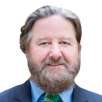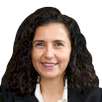As the elderly population continues to grow exponentially, it is now more important than ever to address certain challenges related to the oral and overall health of older adults to ensure healthy longevity. In this interview, Dental Tribune International spoke with Dr Kakuhiro Fukai, director of the Fukai Institute of Health Science in Japan and chair of FDI’s Oral Health for an Ageing Population (OHAP) task team. Drawing on his decades-long experience of global oral health, Dr Fukai discussed some pressing issues related to the oral healthcare needs of older adults and shared some wisdom on how to best address them.
Dr Fukai, how does ageing affect oral health, and how can maintaining good oral hygiene improve the oral and overall health of older adults?
Ageing leads to a decline in the physical and mental functions needed for daily functioning, increasing vulnerability to disease. In the oral cavity, the loss of teeth, a decline in chewing ability and swallowing function, and a reduction in saliva production also often occur. The systemic health effects and oral health effects of ageing also have a reciprocal relationship, affecting each other in a vicious cycle. This is particularly observable when it comes to chewing function, malnutrition and sarcopenia. Another good example is oral health-related quality of life and reduced social participation.
Maintaining good oral health is crucial for lifelong quality of life, and it has been shown to contribute to the prevention of non-communicable diseases, cognitive decline and frailty. Research also shows that oral healthcare maintenance helps to prevent dental caries, periodontal disease, tooth loss and a decline in oral function, thereby contributing to healthy longevity.
What role do dental professionals play in managing the oral healthcare needs of an ageing population?
Dental professionals contribute not only to oral health maintenance but also to the prevention of non-communicable diseases and frailty as well as the promotion of social participation. They do so by delivering quality preventive care, including education, and dental treatment via the life course approach, that is, by preventing and controlling caries, periodontal disease, tooth loss and a decline in oral function. It is also crucial that dental professionals work on improving the early detection of oral cancer in an ageing population. Owing to the complex interrelatedness of oral and systemic health, dental professionals should work in close cooperation with a variety of other healthcare professionals.
When assessing, diagnosing and treating older adult patients, dental professionals first need to be aware of patients’ multi-morbidity and medication regimens. They must assess the physical and mental status of patients, for example robust, frail or dependent, and then proceed to the objective assessment of gradual changes in oral function owing to ageing.
To detect oral function decline as early as possible, it is not enough to perform these assessments in the isolated context of outpatient dental services. Regional community healthcare networks need to establish collaborative assessment and/or information-sharing systems that integrate the efforts of dental clinics, nursing homes and perhaps even families and companies.
In 2015, FDI launched the OHAP project to strengthen the role of the oral health community in achieving healthy longevity for patients. What are the overarching goals of the initiative, and how has it helped spread awareness of the topic?
The Japan Dental Association and the World Health Organization organised the 2015 World Congress, during which the Tokyo Declaration was issued. This declaration emphasised that lifelong oral health is a fundamental human right, called for the inclusion of oral healthcare in all healthcare policies and recognised the essential role of oral healthcare in maintaining quality of life.
“When assessing, diagnosing and treating older adult patients, dental professionals first need to be aware of patients’ multi-morbidity and medication regimens”
Based on the Tokyo Declaration, FDI established the OHAP project to raise the awareness of national dental associations of oral healthcare for an ageing population, to assess national or regional oral healthcare policies and share that information globally, to identify solutions and to address these issues at the global and national level. Season I (2016–2019) of the OHAP project produced a guide for managing the dental treatment of older adults, an oral healthcare pathway for older people and a road map for healthy ageing, all of which are on FDI’s website.
Building on the resources produced during Season I, Season II (2021–2023) of the OHAP project seeks to further promote clinical and community initiatives to achieve optimal oral health in older adults. The focus of Season II is on clinical issues such as oral functional decline. Season II aims to promote widespread dissemination and use of the Season I resources and to adapt them for use in different settings and groups, to promote awareness of the role of oral function in elderly oral health and to provide practical tools for patients and oral health professionals to prevent functional decline. To achieve these objectives, the OHAP team has surveyed national dental associations, published supplementary issues of the International Dental Journal, organised symposia at World Dental Congresses and held various webinars.
What resources are available to help guide dental professionals in their journey to better address the oral health-related challenges of older dental patients?
One of the products of OHAP Season I was the Managing Older Adults: Chairside Guide. This document provides a wealth of prevention-oriented advice for dental professionals according to each patient’s level of dependency. In OHAP Season II, the guide has been further revised, made more user-friendly for dentists and developed as a web app. In addition to the level of dependency, the guide now includes oral frailty as a preliminary assessment for older patients.
Validated scales were used for these assessments. Additionally, clear and concise infographics are provided for patients and caregivers based on these assessments. These tools increase dentists’ basic knowledge of and competence in dealing with older people. We also believe that they will enable interactive and shared decision-making between dentists and older patients, ensuring a more people-centred and function-focused approach.
Specific details will be presented at a symposium organised by OHAP at 2023 FDI World Dental Congress, which I cordially invite those interested to attend.
Editorial note:
Dr Kakuhiro Fukai is one of the speakers at the symposium, titled “Oral health for an ageing population”, which will be held during the 2023 FDI World Dental Congress on 25 September from 11:45 to 12:45. More information about the event can be found here.
Tags:
Over the last five years, FDI has been developing resources to assist dental professionals in the planning and delivery of care for partially dentate ...
The countdown is finally over. Four years after its last in-person event, the FDI World Dental Congress is making a return. Dental Tribune International ...
SYDNEY, Australia: Organised annually by FDI World Dental Federation, the World Dental Congress is one of the most prestigious continuing education events ...
SYDNEY, Australia: This year’s FDI World Dental Congress is going to be one of the premier global dental events of the year, not only bringing the dental ...
SYDNEY, Australia: To engage with aspiring dental professionals and students, FDI has launched the Young Dentists Forum, and the inaugural session will be ...
Celebrated every year on 20 March, World Oral Health Day (WOHD) is the largest global awareness campaign on oral health. The WOHD task team oversees the ...
Live webinar
Wed. 21 August 2024
9:00 am EST (New York)
Dr. Jim Lai DMD, MSc(Perio), EdD, FRCD(C)
Dr. Lars Rosén Christensen
Dr. Zoe Brookes, Prof. Colman McGrath, Prof. Michael McCullough



 Austria / Österreich
Austria / Österreich
 Bosnia and Herzegovina / Босна и Херцеговина
Bosnia and Herzegovina / Босна и Херцеговина
 Bulgaria / България
Bulgaria / България
 Croatia / Hrvatska
Croatia / Hrvatska
 Czech Republic & Slovakia / Česká republika & Slovensko
Czech Republic & Slovakia / Česká republika & Slovensko
 France / France
France / France
 Germany / Deutschland
Germany / Deutschland
 Greece / ΕΛΛΑΔΑ
Greece / ΕΛΛΑΔΑ
 Italy / Italia
Italy / Italia
 Netherlands / Nederland
Netherlands / Nederland
 Nordic / Nordic
Nordic / Nordic
 Poland / Polska
Poland / Polska
 Portugal / Portugal
Portugal / Portugal
 Romania & Moldova / România & Moldova
Romania & Moldova / România & Moldova
 Slovenia / Slovenija
Slovenia / Slovenija
 Serbia & Montenegro / Србија и Црна Гора
Serbia & Montenegro / Србија и Црна Гора
 Spain / España
Spain / España
 Switzerland / Schweiz
Switzerland / Schweiz
 Turkey / Türkiye
Turkey / Türkiye
 UK & Ireland / UK & Ireland
UK & Ireland / UK & Ireland
 Brazil / Brasil
Brazil / Brasil
 Canada / Canada
Canada / Canada
 Latin America / Latinoamérica
Latin America / Latinoamérica
 USA / USA
USA / USA
 China / 中国
China / 中国
 India / भारत गणराज्य
India / भारत गणराज्य
 Japan / 日本
Japan / 日本
 Pakistan / Pākistān
Pakistan / Pākistān
 Vietnam / Việt Nam
Vietnam / Việt Nam
 ASEAN / ASEAN
ASEAN / ASEAN
 Israel / מְדִינַת יִשְׂרָאֵל
Israel / מְדִינַת יִשְׂרָאֵל
 Algeria, Morocco & Tunisia / الجزائر والمغرب وتونس
Algeria, Morocco & Tunisia / الجزائر والمغرب وتونس
 Middle East / Middle East
Middle East / Middle East
:sharpen(level=0):output(format=jpeg)/up/dt/2024/07/Study-evaluates-primary-personality-types-among-dental-students.jpg)
:sharpen(level=0):output(format=jpeg)/up/dt/2024/07/Shutterstock_2330040761.jpg)
:sharpen(level=0):output(format=jpeg)/up/dt/2024/07/file-7.jpg)
:sharpen(level=0):output(format=jpeg)/up/dt/2024/07/Our-commitment-to-digital-dentistry-is-a-cornerstone-of-our-strategy.jpg)
:sharpen(level=0):output(format=jpeg)/up/dt/2024/07/Shutterstock_1051488260.jpg)








:sharpen(level=0):output(format=png)/up/dt/2023/06/Align_logo.png)
:sharpen(level=0):output(format=png)/up/dt/2013/04/Dentsply-Sirona.png)
:sharpen(level=0):output(format=png)/up/dt/2019/04/logo.png)
:sharpen(level=0):output(format=png)/up/dt/2023/08/Neoss_Logo_new.png)
:sharpen(level=0):output(format=png)/up/dt/2022/01/Sprintray_Logo_2506x700.png)
:sharpen(level=0):output(format=png)/up/dt/2011/07/fdi.png)
:sharpen(level=0):output(format=jpeg)/up/dt/2023/09/Maintaining-good-dental-and-oral-health-is-crucial-for-lifelong-quality-of-life.jpg)
:sharpen(level=0):output(format=jpeg)/up/dt/2024/03/profile-image-300x300.jpg)
:sharpen(level=0):output(format=jpeg)/up/dt/2023/09/Proper-resources-and-evidence-based-practices-are-crucial-for-providing-high-quality-dental-care-.jpg)
:sharpen(level=0):output(format=jpeg)/up/dt/2023/09/FDI-Sydney-2023_11.jpg)
:sharpen(level=0):output(format=jpeg)/up/dt/2023/09/FDI-to-welcome-the-world-of-dentistry-to-Australia_1-1.jpg)
:sharpen(level=0):output(format=jpeg)/up/dt/2023/09/FDI-2023-Latest-industry-trends-and-expansive-networking-opportunities.jpg)
:sharpen(level=0):output(format=jpeg)/up/dt/2023/09/FDIs-Young-Dentists-Forum-empowers-future-leaders-in-dentistry.jpg)
:sharpen(level=0):output(format=jpeg)/up/dt/2023/09/New-strategy-for-WOHD-to-be-revealed-at-World-Dental-Congress-.jpg)








:sharpen(level=0):output(format=jpeg)/up/dt/2024/05/FDI-World-Dental-Congress-2024-promises-great-continuing-education-and-networking-experience.jpg)
:sharpen(level=0):output(format=jpeg)/up/dt/2024/03/Shutterstock_1940444479.jpg)
:sharpen(level=0):output(format=jpeg)/up/dt/2024/01/New-journal-supplement-explores-the-role-of-mouthwash-in-oral-care.jpg)
:sharpen(level=0):output(format=jpeg)/wp-content/themes/dt/images/3dprinting-banner.jpg)
:sharpen(level=0):output(format=jpeg)/wp-content/themes/dt/images/aligners-banner.jpg)
:sharpen(level=0):output(format=jpeg)/wp-content/themes/dt/images/covid-banner.jpg)
:sharpen(level=0):output(format=jpeg)/wp-content/themes/dt/images/roots-banner-2024.jpg)
To post a reply please login or register